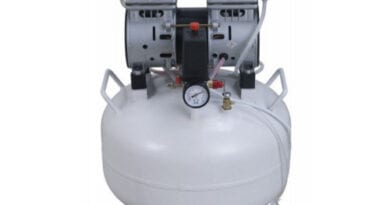Behind the Doors: Key Components of Effective Psychiatric Hospital Care
In the realm of mental health care, psychiatric hospitals play a vital role in providing support and treatment for individuals experiencing acute psychiatric crises. Behind the doors of these facilities lies a complex and multifaceted system designed to address the diverse needs of patients while ensuring their safety and well-being.
Effective psychiatric hospital care requires a comprehensive approach that encompasses various essential components aimed at promoting recovery and improving the quality of life for patients. In this article, we delve into some of the key components that contribute to the effectiveness of psychiatric hospital care.
Comprehensive Assessment and Evaluation:
The journey towards effective psychiatric care begins with a thorough assessment and evaluation of the patient’s mental health condition. This initial step involves gathering information about the patient’s history, symptoms, and current functioning to formulate an accurate diagnosis and develop an appropriate treatment plan.
A comprehensive assessment helps identify underlying issues, determine the level of care needed, and tailor interventions to meet the individual needs of each patient.
Multidisciplinary Treatment Team:
Collaboration among a diverse team of healthcare professionals is fundamental to the success of psychiatric hospital care. Psychiatrists, psychologists, nurses, social workers, occupational therapists, and other specialists work together to provide holistic care that addresses the biological, psychological, and social aspects of mental illness.
Each member brings unique expertise and perspectives to the table, contributing to a comprehensive and integrated approach to treatment.
Evidence-Based Interventions:
Effective psychiatric hospital care relies on the implementation of evidence-based interventions proven to be efficacious in treating various mental health conditions. These interventions may include medication management, psychotherapy, behavioral therapies, group therapy, recreational activities, and psychosocial interventions.
By incorporating interventions supported by scientific research and clinical evidence, psychiatric hospitals can enhance treatment outcomes and promote recovery.
Safe and Therapeutic Environment:
Creating a safe and therapeutic environment is essential for fostering healing and recovery in psychiatric hospitals. This involves ensuring physical safety through measures such as secure facilities, trained staff, and crisis intervention protocols.
Additionally, the environment should be conducive to therapeutic activities, promoting relaxation, comfort, and engagement. Incorporating elements of nature, artwork, and sensory stimulation can contribute to a calming and supportive atmosphere.
Individualized Treatment Plans:
Recognizing that every patient is unique, effective psychiatric hospital care emphasizes the development of individualized treatment plans tailored to meet the specific needs and goals of each individual.
Treatment plans are collaboratively developed with input from the patient, family members, and treatment team members, taking into account factors such as diagnosis, preferences, strengths, and challenges. By personalizing care, psychiatric hospitals can maximize the effectiveness of interventions and enhance patient engagement.
Continuity of Care and Aftercare Planning:
Transitioning from psychiatric hospitalization to the community marks a pivotal stage in the treatment continuum. Successful psychiatric hospital care hinges on meticulous discharge planning and seamless continuity of care to guarantee that patients receive sustained support and follow-up services upon discharge. This entails facilitating connections to outpatient resources, community mental health services, medication management, housing assistance, and support groups, thereby facilitating a smooth reintegration process and mitigating the risk of relapse.
Additionally, the integration of electronic mental health records software streamlines this process, ensuring that crucial patient information is accessible to relevant healthcare providers across different care settings, thereby promoting coordinated and comprehensive care.
Family and Peer Involvement:
Engaging family members and peers in the treatment process can greatly enhance the effectiveness of psychiatric hospital care. Family therapy sessions, psychoeducation programs, and support groups provide opportunities for family members to learn about mental illness, improve communication skills, and support their loved one’s recovery journey.
Similarly, peer support programs allow individuals with lived experiences of mental illness to connect, share their experiences, and offer mutual support and encouragement.
In Conclusion
Effective psychiatric hospital care encompasses a range of key components aimed at promoting recovery, enhancing the quality of life, and supporting individuals in their journey toward mental health wellness. By incorporating comprehensive assessment, multidisciplinary treatment teams, evidence-based interventions, safe and therapeutic environments, individualized treatment plans, continuity of care, and family and peer involvement, psychiatric hospitals can provide high-quality care that meets the diverse needs of patients.
Ultimately, behind the doors of psychiatric hospitals lies a commitment to compassion, empathy, and empowerment, guiding patients toward hope, healing, and recovery.



